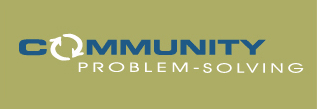Negotiation, Mediation and Consensus Building
This section currently has one strategy tool plus web links.
 |
| More than ever, effective problem-solving demands that we know when and how to craft valuable agreements with other parties. As more and more stakeholders ask to participate in decisions that affect them, and as the work of public problem-solving is shared across the government, business, and non-governmental (nonprofit) sectors, the demand for negotiation grows dramatically. No one can afford to ignore this core civic skill: being able to creatively advance shared interests and resolve differences too. But negotiating isn't always best, and commuity problem-solving often presents special challenges associated with informal bargaining, powerful subtexts (hidden negotiations) grounded in a community's history, and ambiguous rules about who should be "at the table" or who can represent whom. "We are all negotiators" shows how to "get to yes" when it's important--and even crucial. |
Click here to download this strategy tool
To view or print this tool, you'll need Acrobat Reader. Click here:
 | Links
An asterisk (*) indicates a web resource with primarily U.S.-based or focused content. Other sites are more international in scope.
Negotiation Resource List #1 (Negotiation Edge) Negotiation Resource List #2 (InterNeg) Program on Negotiation (Harvard Law School), includes links to training materials, cases, events, syllabi, list-serves and communities of practice Negotiation and Conflict Resolution (overview and teaching material) Consensus Building Institute (includes overview of facilitated consensus building) Consensus Building Overview #2 and Case Links
*Community Mediation (Association for), includes overview and history *Community Mediation Center | 
